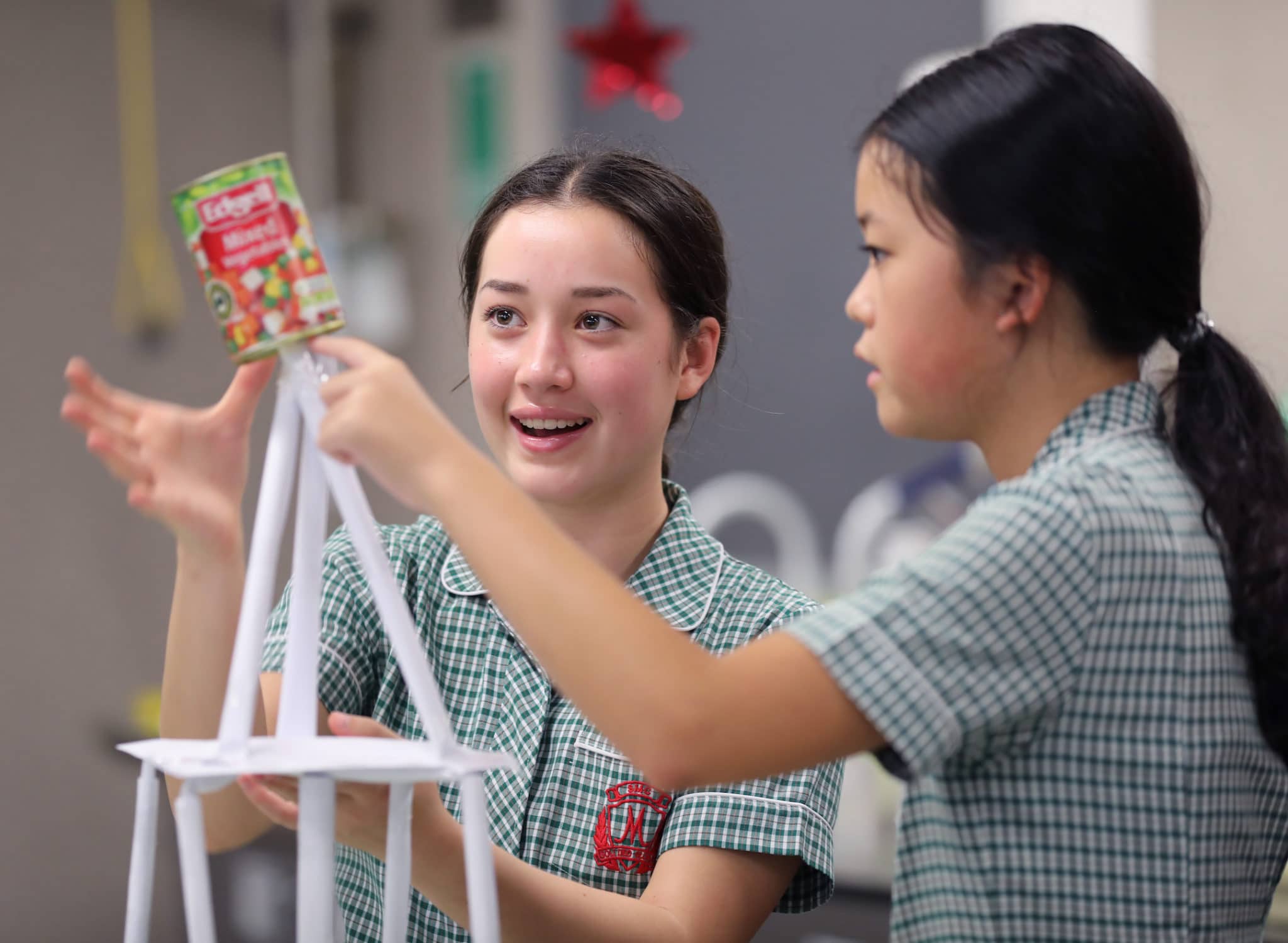Learning Conversations To Maximise Success – Jennifer Oaten

When our daughters reach high school, it is easy for parents to step away and be less informed about their learning at school. So to begin, some questions to ask yourself
- What is the topic your daughter is currently studying in her Science program?
- What novel is your daughter currently reading for English?
- What are the discussions occurring in Health classes?
- Which elective is your daughter enjoying most and why?
- Which subject does your daughter need some support with?
When was the last time you had a 'learning conversation' with your daughter?
For many families, this occurred during our recent Parent-Teacher-Daughter interviews when our families scheduled 1404 interviews. However, ongoing conversations about learning have the potential to help your daughter maximise her learning and success.
Conversations about learning are important because:
- Parents are the first educators of their children.
- Learning is lifelong and occurs in many settings beyond school.
- Time committed to conversations about learning indicates the value you place on learning.
- Parent engagement shares the responsibility for learning.
- They enrich student learning and wellbeing.

Even though teenagers are seeking independence, parental involvement is an important contributor to academic success. Most parents want their children to do well in school and have a desire to help their children succeed. Conversations about learning can be of great benefit.
7 Suggested Learning Conversations
1. Learning focus
Understand what the topics, tasks and key focus areas are for your daughter. Rather than asking, “how was your day” be more specific, for example, “what were you learning about in Science today?” Ask open questions that show your interest.
2. Focus on growth
Prioritise talking about what went well, what was challenging, the strategies your daughter used, and what she learned and will do differently next time. Try to focus on growth rather than marks or grades.
3. Support for learning
Have conversations with your daughter about how you, as parents, can support her learning. Is it about providing a study space, routine, reading the same novel, or discussing politics? What would she like you to do to support her learning?
4. Successes and failures
Describe your strengths in learning, what you found challenging and how you resolved the challenge. Don’t ever say, “I hated Maths”. We want our girls to have confidence and to believe in their mathematical ability. It is better to say, “I found Maths challenging, but I always asked for help”. Share your stories of how you showed resilience when you were disappointed or how you celebrated your achievements. Understand what your daughter sees as her successes and challenges.
5. Sharing strategies
Everyone learns differently and finds their most valuable strategies at different times. Share ways you and other family members organise, revise and learn information.
6. Mealtime topics
Give time to exploring an idea, a story, or an issue. Deep conversations engage the mind and encourage our girls to have an opinion. This is incredibly useful in relation to many aspects of learning. Ask them to bring a discussion topic, preferably one they are studying, to the table and have everyone contribute their perspective.
7. Watch the news together
Debate the issues that arise in current affairs and encourage your daughter to express her thoughts and opinions. Ask questions about why she has particular beliefs. We want our students to have a voice.
Conversations about learning may occur at mealtimes, in the car or at home, but they are valuable for all students. They open up all kinds of opportunities, including developing relationships, increasing parental understanding and supporting your daughter’s education.

The Power of Expectations in Shaping Student Success – Jennifer Oaten
Discover the transformative impact of expectations on student success. Learn how belief shapes outcomes in education and beyond.

Exploring the Artistic Universe of Isabelle de Kleine (2011)
From childhood, Isabelle de Kleine’s talent flourished, guided by the supportive Art department into the renowned artist she is today.

What A Term! So Many Opportunities – Jennifer Oaten
As I look back on the past nine weeks, I am so grateful for who we are as a community and what we have achieved. Through the dedication of our staff and the enthusiasm of our students, we have established new connections, immersed ourselves in opportunities and worked through challenges.
- Featured
Author: Santa Maria College
Santa Maria College is a vibrant girls school with a growing local presence and reputation. Our Mission is to educate young Mercy women who act with courage and compassion to enrich our world. Santa Maria College is located in Attadale in Western Australia, 16 km from the Perth CBD. We offer a Catholic education for girls in Years 5 – 12 and have 1300 students, including 152 boarders.






